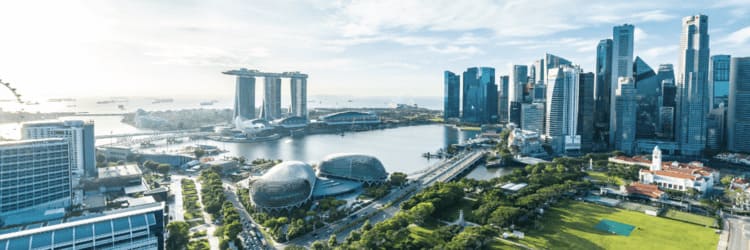Singapore Trusts: the tax risks of reserved powers for trust settlors Pt 2
Andrew Galway, Managing Director of Sovereign Management Services Pte Ltd.
In Part 1 of this article, I looked at the risks to which settlors of trusts in Singapore can be exposed if they take advantage of Section 90(5) of the Trustees Act to reserve for themselves “any or all powers of investment or asset management functions”.
Even in jurisdictions like Singapore where reserved powers are permitted by statute, if such powers combine with the factual circumstances to produce the ‘true effect’ that the settlor still retains effective control of the trust property, then the courts may find that the trust is not valid.
In the second part of this article, I intend to focus on why a Singapore-resident settlor might consider setting up an offshore trust in a jurisdiction and why, if they do so, they should ensure that the powers of investment or asset management remain with the offshore professional trustees.
The tax treatment of trusts in Singapore is dependent on the residency of the trust. Where there is residency in Singapore, and an exemption does not apply, income derived by trusts will be either taxed at the trustee level or in the hands of the beneficiaries.
Generally, income derived from a trade or business carried on by the trustees is subject to tax at the trustee level, while other income is subject to tax in the hands of the beneficiaries where they are resident in Singapore and entitled to the trust income.
If, however, a Singapore-resident settlor sets up a trust in an offshore jurisdiction, then the residence status of the trust will generally be determined by that of the offshore trustees.
An offshore trust can provide shelter from taxation that might have otherwise been payable under a local trust. An offshore trust can also offer the opportunity for the gross roll up of investment trading income for reinvestment by the trustees. There can also be non-tax advantages over a domestic Singapore trust, including asset protection, succession planning and enhanced confidentiality.
Guernsey would be a good example of an alternative jurisdiction for setting up offshore trusts. Guernsey is at the forefront of best practice development in the area of trusts and was one of the first jurisdictions to introduce the regulation and supervision of trust companies. It also offers a strong tradition of enforcing trusts, an English common law system, substantial banking infrastructure, economic and political stability, and good accessibility.
Guernsey has adopted rigorous international tax and regulatory standards and is ‘white listed’ by both the Organisation for Economic Co-operation and Development (OECD) and European Union (EU). Guernsey has signed 13 full double taxation agreements and over 60 tax information exchange agreements. Guernsey is also a party to the OECD’s Multilateral Convention on Mutual Administrative Assistance in Tax Matters.
If all beneficiaries are resident outside Guernsey, a trust will be exempt from both Guernsey income tax on income arising outside Guernsey and income on bank deposit interest arising from within Guernsey.
A trustee can therefore make distributions without any withholding or deduction of Guernsey income tax. Guernsey does not levy any inheritance, wealth, gift or capital gains taxes. Other indirect forms of tax, such as stamp duty and VAT, do not apply in Guernsey.
Generally, if the person making the investment decisions is not in Singapore, then the investment trading income should not be considered to be accrued in or derived from Singapore.
If the settlor of a Guernsey trust opts for reserved powers of investment, they may be seen to be effectively controlling the trust and therefore administering it in the jurisdiction in which he is resident. This is a concern from a tax point of view. From a Singapore perspective, this might mean that the trust is administered in Singapore, or that the settlor is, in fact, effectively a trustee; as a Singapore resident, this might mean the investment trading income could be liable to tax in Singapore.

The question of balance is crucial. Settlors should be mindful of reserving powers of investment because this could compromise the non-resident (offshore) status of the trust and expose the settlor to an unwelcome tax liability where they are tax resident.
For further information or to discuss the establishment or management of a trust, please contact Andy Galway by telephone at +65 6222 3209 or by email to agalway@sovereigngroup.com
